
Three years on, are there any routes for justice in the Beirut port blast explosion?

Three years ago on 4 August, 2,750 tons of Ammonium Nitrate exploded in a warehouse in the port of Beirut, producing the largest non-nuclear explosion in human history, killing at least 250, wounding over 7,000, and ripping the capital city apart.
Then Prime Minister Hassan Diab promised those responsible for the blast would be identified and charged within five days. Three years later, no one has been charged in connection with the Beirut blast.
Rights groups say that Lebanon’s own investigation into the Beirut blast has been blocked at every turn by the state and Lebanon’s political class.
The investigative judge in charge of the domestic probe - Judge Tarek Bitar - has not been allowed to work on the case since December 2021. The suspects he seeks to interrogate have filed lawsuits against him and the state has refused to appoint judges to rule on those suits – a prerequisite for the investigation to continue.
"Rights groups say that Lebanon's own investigation into the Beirut blast has been blocked at every turn by the state and Lebanon's political class"
Faced with a stalled investigation at home, Lebanon’s civil society and victims of the blast have turned to the international community for help.
Ahead of the third anniversary of the man-made disaster, hundreds of local and international rights groups and victims published a joint letter calling for the UN Human Rights Council (HRC) to establish an international fact-finding mission into the blast.
Other victims have decided to push ahead in foreign courts, filing cases in foreign jurisdictions to seek justice and restitution from individuals and companies that might be complicit in the blast.
Three years on, legal advocates and victims are trying every avenue they can to achieve justice for the Beirut blast, at home and abroad.
Is the domestic investigation dead?
Despite the then PM’s promise for speedy justice, Lebanon’s political elites have used every tool at their disposal to obstruct the domestic investigation’s quest for justice.
The first investigative judge - Fadi Sawan - assigned to head the investigation into the Beirut blast was removed after he charged the former PM and three other ministers in connection with the case. Politicians alleged that because his house was damaged in the blast, he was politically biased.
Sawan was replaced by Judge Bitar, who proceeded to summon a number of officials for interrogation. The accused filed a flurry of lawsuits against him, accusing him of political bias. Lebanon’s Court of Cassation must rule on each suit before Bitar could continue, forcing him to periodically pause his investigation.
Since December 2021, however, the Court of Cassation has lacked the judges to rule on the lawsuits against Bitar. The Lebanese Ministry of Finance has refused to authorise the funds to appoint new judges, leaving Bitar unable to progress in his investigation.
|
|
In January 2023, Bitar made a surprise move, issuing his own legal analysis that said he was allowed to continue his investigation in spite of the pending lawsuits. He immediately charged former top officials, and summoned several others, including Beirut’s top prosecutor, for questioning.
The prosecutor, in turn, charged Bitar with “usurping” his power and ordered the Ministry of Justice not to respond to his commands.
The domestic investigation has been stalled since, with the court cases against Bitar pending.
“As long as the judge exists, we can’t say that there is no hope,” Nizar Saghieh, the head of Lebanon’s Legal Agenda, told The New Arab.
"Faced with a stalled investigation at home, Lebanon's civil society and victims of the blast have turned to the international community for help"
“We are not living in a system that respects the rule of law, and the investigation against Bitar is going very slowly, but he is still resisting and this is the positive factor,” Saghieh said.
There is some hope that when Lebanon’s current top prosecutor - Ghassan Oueidat - retires in February, Bitar might have a renewed chance at resuming the investigation.
“The next prosecutor general can re-empower Bitar. This would be a positive development, because the current prosecutor [Oueidat] is involved in the case himself, so it’s totally absurd,” Saghieh said.
Pushing for an international fact-finding mission
After seeing Lebanese authorities thwart the domestic investigation into the Beirut port blast at every turn, local and international rights bodies have turned towards the international community for justice.
Several joint letters and statements have been signed by rights organisations and the families of the victims of the Beirut blast demanding an international fact-finding mission. Dozens of Lebanese MPs also signed a petition asking for an international probe to be established.
Such a probe would collect and preserve evidence and witness testimony, begin the process of assigning responsibility to parties for the blast, and make recommendations on how justice can be achieved for victims of the blast.
“The fact-finding mission sends a message that you can’t simply fail to uphold individuals’ right to life, that there needs to be accountability and truth, and that this is mandated by Lebanon’s international partners,” Ramzi Kaiss, the Lebanon researcher at Human Rights Watch (HRW), told TNA.
|
|
In order to create an international, independent fact-finding mission, members of the HRC needs to put forth and vote on a resolution to establish it.
However, according to Kaiss, the rights organisations are still at the “preliminary stage of convincing states” to establish the international fact-finding mission.
In March, Australia and 37 other countries put out a statement at the HRC condemning the Lebanese authorities’ interference in the domestic probe, urging them to allow the investigation to continue in good faith.
The fact that this statement went unheeded may create some renewed momentum at the HRC.
“The argument is because they ignored [Australia’s statement] there needs to be an international investigation, because without it, victims of the explosion will be denied justice,” Kaiss said.
"We cannot always look to foreign or international courts. It's strategically important to continue this investigation, but there is a lot of political obstruction. How can we go beyond this? It's part of a social struggle"
Filing cases in foreign jurisdictions
While rights groups lobby for a UN-fact-finding mission, other advocates have turned to foreign jurisdictions for justice.
Zeina Wakim, the head lawyer of Accountability Now, is helping those with foreign passports injured in the Beirut blast to file cases in their national jurisdictions against the perpetrators of the man-made disaster.
There have been cases filed in France, Germany, the UK and the US, and at least five to ten more cases will be filed by year’s end, according to Wakim.
The idea behind filing cases in national jurisdictions is to create a sort of “domino effect”, where if enough cases are filed in enough countries, resources will be pooled and international efforts will go to the Beirut blast probe.
“This will be a replica of what is happening in the Riad Salameh case with pan-European cooperation among several investigative magistrates and prosecutors exchanging information on the case,” Wakim told TNA.
She argued that while some foreign investigators have waited for Judge Bitar to provide mutual assistance and share the findings of his investigations, there is still sufficient evidence outside of Lebanon to have foreign cases move forward independently of the Lebanese investigation.
Though cases can only be filed in countries outside of Lebanon if victims or perpetrators are nationals of those countries, facts uncovered by foreign investigations could help uncover justice for Lebanese victims as well.
“Their quest for justice and accountability could be fulfilled through other victims. Any financial award benefiting European and US victims seeking justice outside of Lebanon would go to a special restitution fund to benefit all other victims,” Wakim said.
Both the effort to establish the international fact-finding mission at the HRC and cases filed in national jurisdictions could work in parallel, and ultimately complement one another.
Still, while pragmatists acknowledge the need for the international community to help establish justice in the face of domestic obstruction, some legal experts are worried about the lasting precedent it could create for Lebanon’s judiciary.
“We are asking for cooperation from an international investigation, but we cannot go to an international court for every crime committed in Lebanon,” Saghieh said.
The blast and subsequent investigation, Saghieh explained, has created some momentum to push for reforming the state’s institutions and obstruction of justice within Lebanon.
“We cannot always look to foreign or international courts. It’s strategically important to continue this investigation, but there is a lot of political obstruction. How can we go beyond this? It’s part of a social struggle,” he said.
William Christou is The New Arab's Levantine correspondent, covering the politics of the Levant and the Mediterranean.
Follow him on Twitter: @will_christou

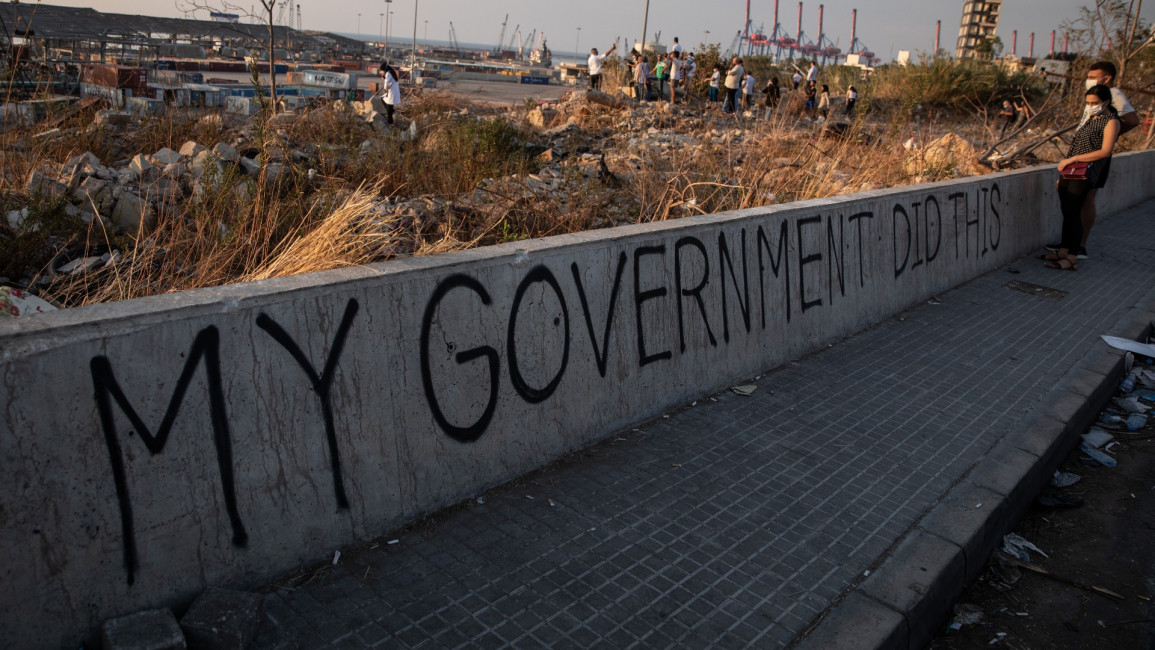
![Sabra neighbourhood strikes [Getty]](/sites/default/files/styles/image_684x385/public/2185030803.jpeg?h=a5f2f23a&itok=6AkMT_OO)
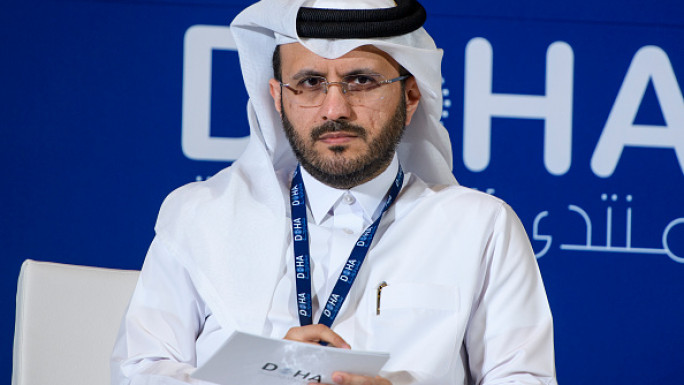
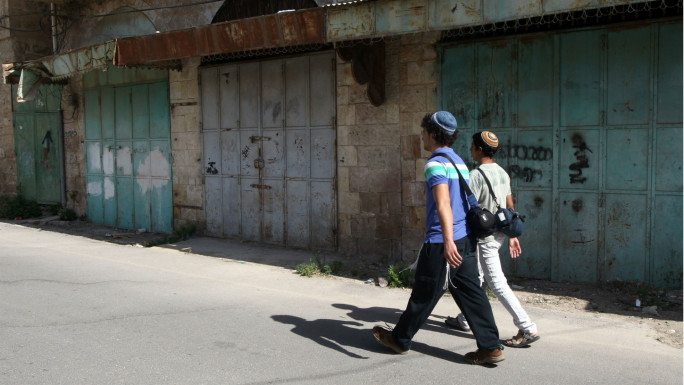
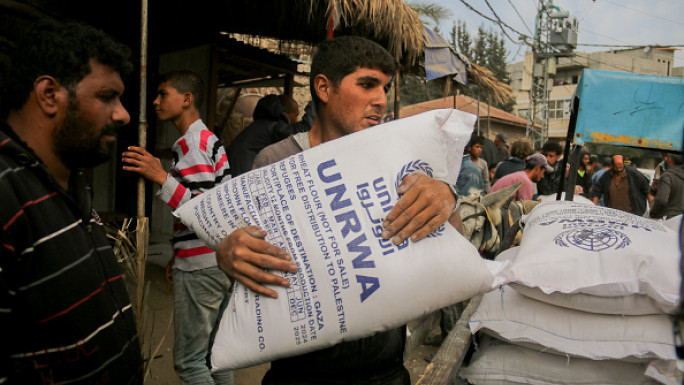
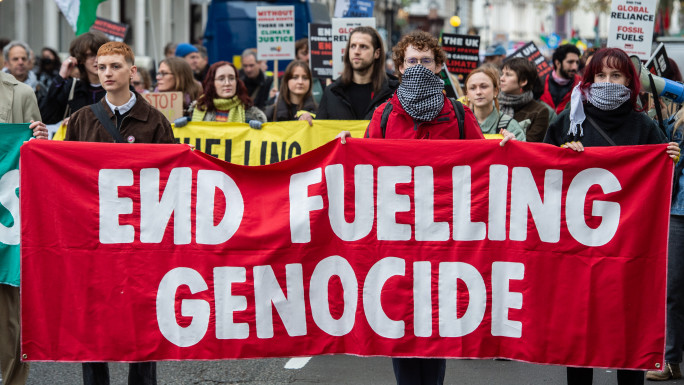
 Follow the Middle East's top stories in English at The New Arab on Google News
Follow the Middle East's top stories in English at The New Arab on Google News


